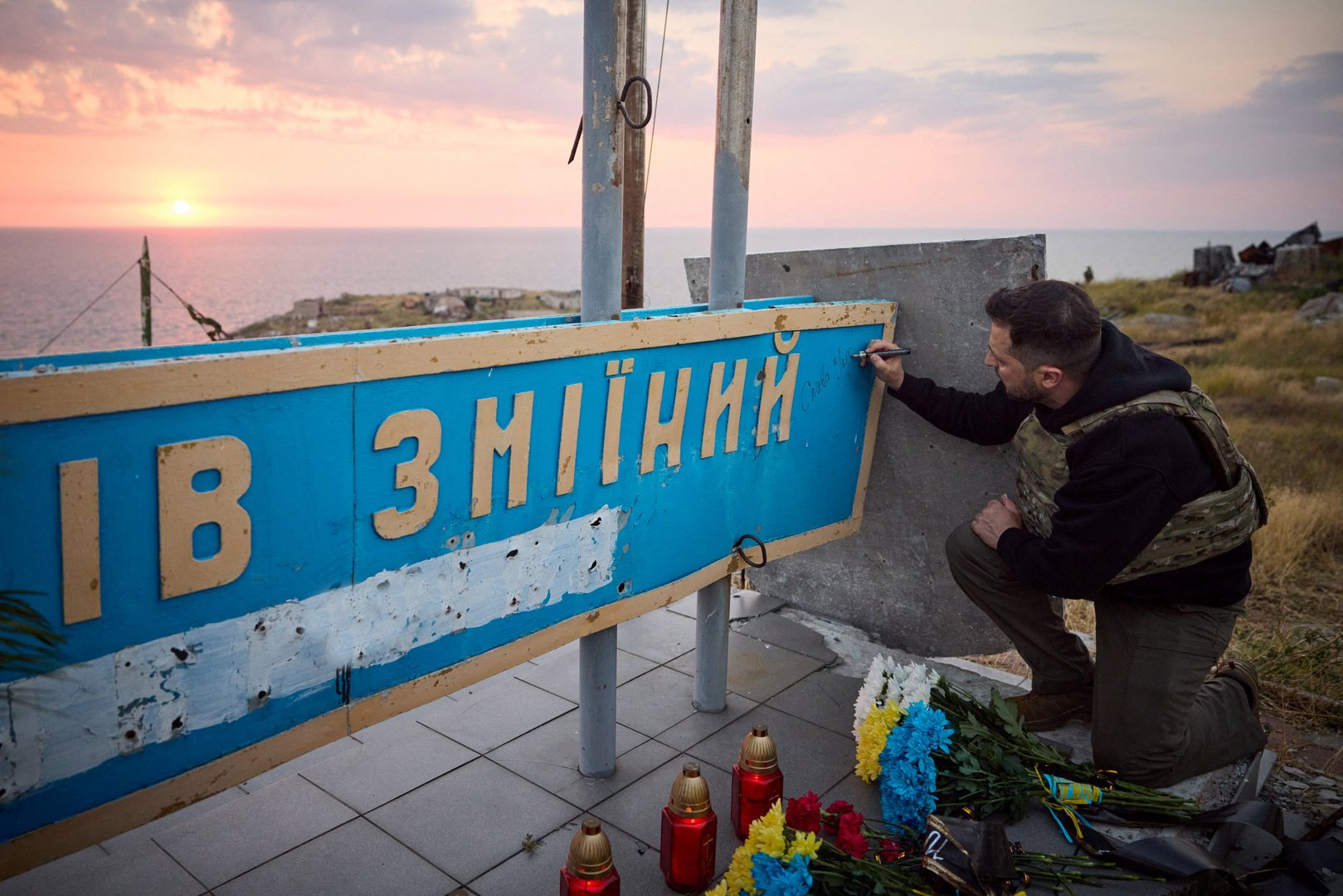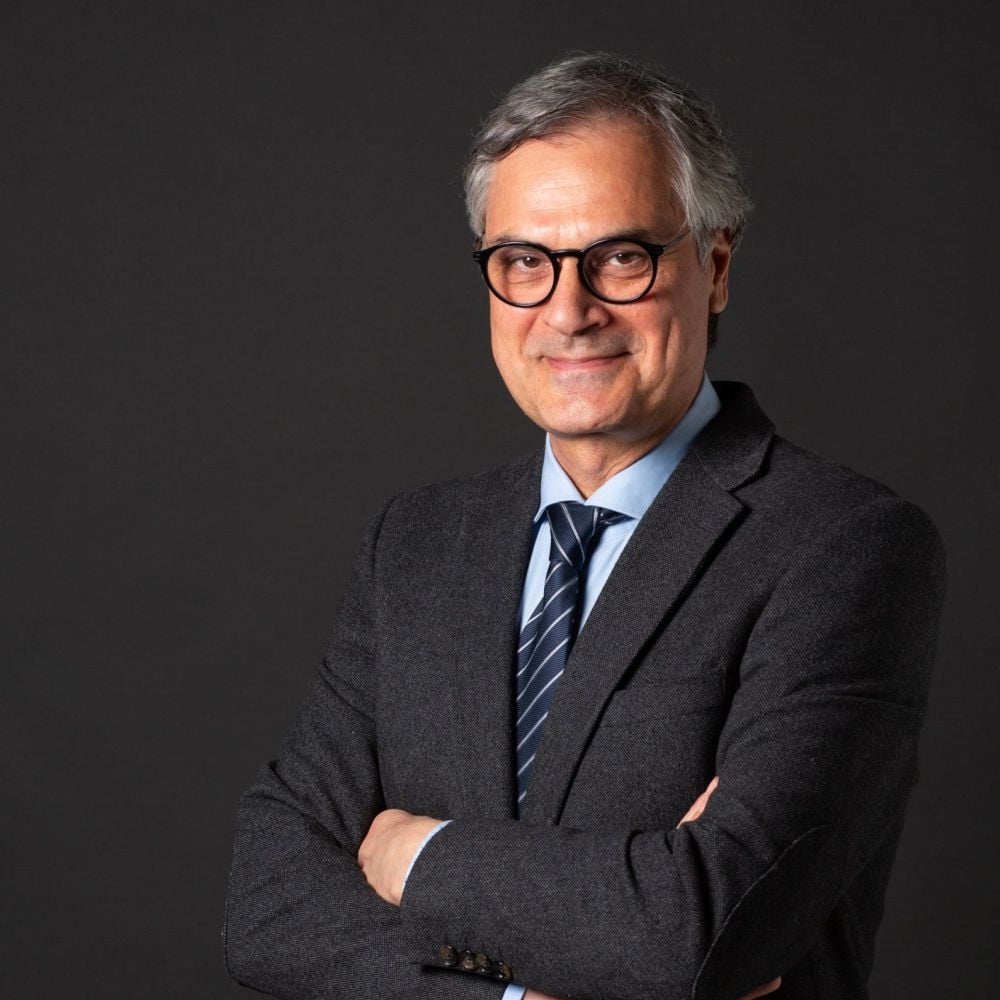By Ioannis Tirkides
A world war, especially on European soil, is unthinkable but raises legitimate concerns. The war in Ukraine has now dragged on for a year and a half, and there is no sign of it ending any time soon. The positions of both sides leave little hope for a negotiated settlement. The continuation of a war that may eventually involve almost all NATO countries carries the risk of an eventual open conflict between Russia and NATO.
If that happens, it will be catastrophic, and the prospect of nuclear exchange will become more real. It is therefore alarming that there is already talk of the use of so-called ‘tactical’ nuclear weapons. In reality, there are no ‘tactical’ nuclear weapons. They all lead to the same result, the destruction of life on the planet as we know it. It is therefore of the utmost importance that peace initiatives are taken.
For this, the weight of history falls on the European Union, especially Germany and France, to put an end to the war in Ukraine, even if this means a breach with NATO and the United States. Unfortunately, all recent developments and statements point in the opposite direction.
At the recent NATO summit in Vilnius, Lithuania, Ukraine was not granted full membership. This was to be expected, as both the United States and Germany had made clear their intention not to extend a membership invitation to Ukraine while the war rages.
Ukraine cannot join the Alliance because that would mean NATO members entering the war and fighting Russia directly rather than by proxy. But Ukraine has nonetheless been offered a path to membership, and even if it is not a near-term prospect, it is one still totally objectionable to the Russians.
The arming of Ukraine continues unabated, despite the Western powers’ admission that their war stocks have been depleted. The US is sending the controversial cluster bombs. The British and the French are sending more long-range cruise missiles that can strike inside Russia and perhaps even Moscow, although the decision to send the missiles comes with the proviso that they will not be used to attack Russia.
But in the context of an increasingly bitter war, who can prevent a strike inside Russia, even on Moscow? Earlier, the Russians had made clear their objections to the F16 fighter jets promised to Ukraine. These jets are nuclear-capable, and their use increases the risk of a surprise nuclear attack.
At the current stage of the war, with the Russians having occupied and annexed a relatively large part of what was Ukraine a year ago, and with the Ukrainian counter-offensive not making much progress on the ground, President Zelensky and his generals may be willing to use anything at their disposal to change the odds. And therein lies the danger. Because whatever one thinks of the war and its causes, the Russians will respond in kind, both to a cruise missile attack inside Russia and to the delivery of the F16 fighter jets.
Another source of potential escalation is the talk, so far confined to rhetoric, by the Poles and Lithuanians of a joint intervention in western Ukraine independently of NATO. If this were to happen, and NATO soldiers were to engage Russian forces in Ukraine under any pretext, they would become targets for the Russians, including possibly military assets and installations within Poland and Lithuania, raising the risk of an all-out war between Russia and the West.
Enter Sweden
Sweden, which has been neutral since the early 19th century and decided to apply for NATO membership after Russia’s invasion of Ukraine, has now seen the last objection to its admission, Turkey’s veto, removed. Turkey made a deal, dropping its veto in return for F16 fighter jets and the promise of closer relations with the European Union.
Erdogan did not promise to antagonise Russia or dismantle the S-400 missile system bought from the Russians. Nor did Erdogan have to do much more than lift his veto on Sweden joining NATO to get all this favourable treatment. This is a sign of the precariousness of the current position of the United States and its NATO allies, and the urgency with which they wanted to expand the organisation to include Finland and Sweden.
European security and the NATO alliance
NATO is not the unified and reinvigorated force it portends to be since Macron declared it ‘brain dead’ in November 2019. There is considerable discourse within the alliance over Ukraine, as well as over tensions with China. The United States no longer has the financial resources to act as Europe’s protector. Defence arrangements will have to change, and European countries will have to devote more resources to their own defence. Josep Borrell, High Representative of the European Union for Foreign Affairs and Security Policy admitted as much.
Speaking to a gathering of EU ambassadors late last year, the High Representative highlighted the risks to European prosperity and security in the emerging global order. Decoupling from Russia and de-risking from China are processes that will fundamentally change the basis of European prosperity. America’s pivot to Asia is changing the concept of European security from first principles.
According to the High Representative, until the events in Ukraine, European prosperity depended on cheap energy from Russia and access to the large Chinese market for cheap goods, trade, and investment. The fact that Russia and China are no longer what they once were in Europe’s economic sphere necessarily means that Europe will go through a process of economic restructuring to achieve greater self-sufficiency in energy and food and a faster transition to a green economy. The necessary adjustments will be hard and will inevitably create political problems at a time when right-wing populism is on the rise.
America’s pivot to Asia means that America will no longer be able to guarantee European security. Responsibility for European security and defence will fall more to the Europeans themselves. And the Germans may well rearm to fill the vacuum that America will leave behind. The basic conclusion, in the words of Josep Borrel, is that ‘a world in which Europe could rely on the United States for its security and on China and Russia for its prosperity is no longer there.’ Europe will never be the same after this war.
No easy way out
There is no easy way out in Ukraine. Before the Russian invasion, the focus was on implementing the 2014 Minsk II agreement. But the calculus has now changed. Short of total defeat, the Russians are unlikely to return to Minsk II, an agreement that Western leaders, including Angela Merkel, said they never intended to implement but used instead to buy time to arm Ukraine and train its army to defeat Russia.
If Russia has no intention of returning the annexed territories, and Ukraine will never accept their loss, the war, in one form or another, will go on for much longer. And if the West sees Russia as an existential threat that needs to be weakened and possibly dismembered, and if Russia also sees NATO’s expansion into Ukraine as an existential threat, then Russia is unlikely to accept what is left of Ukraine as part of NATO. Neutrality will still be a precondition for peace, which ironically brings us to the beginning of this war.
There is no good war except the one that is not fought. Having failed to prevent this one, the Europeans will have to secure peace themselves, and this cannot be achieved without Russia. To get through the incomprehensible mess that lies on the ground, with hundreds of thousands dead and many millions displaced, with Ukraine dismembered and in ruins, Europeans will have to change their tune before political instability and the far right take a greater toll on their increasingly fragile democracies.
Ioannis Tirkides is the Economics Research Manager at the Bank of Cyprus and President of the Cyprus Economic Society. Views expressed are personal. The article is also published on the Blog of the Cyprus Economic Society.







Click here to change your cookie preferences